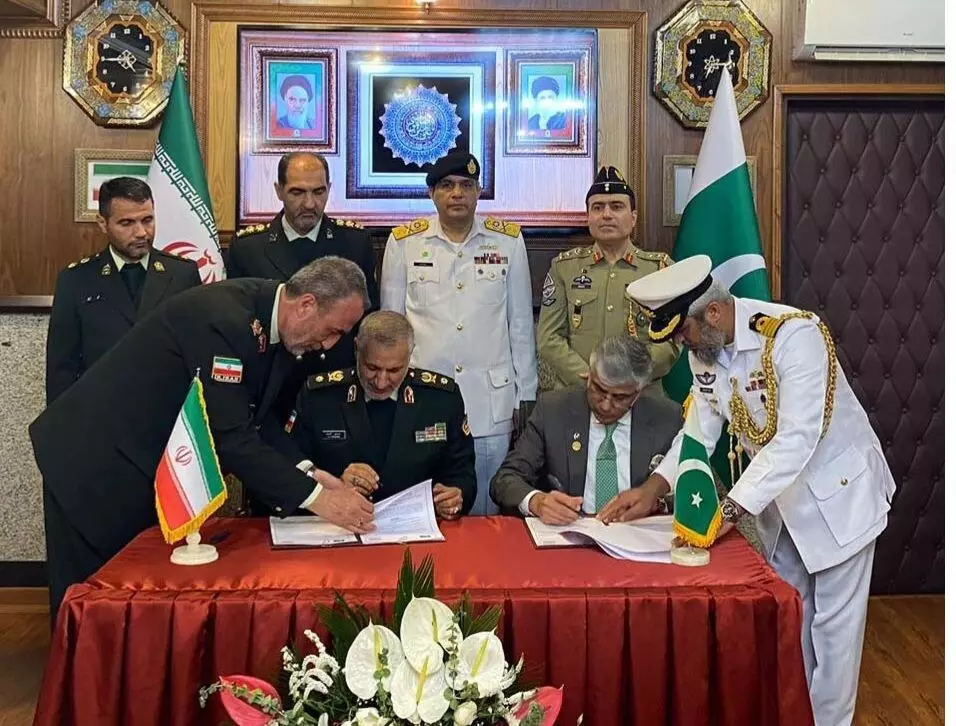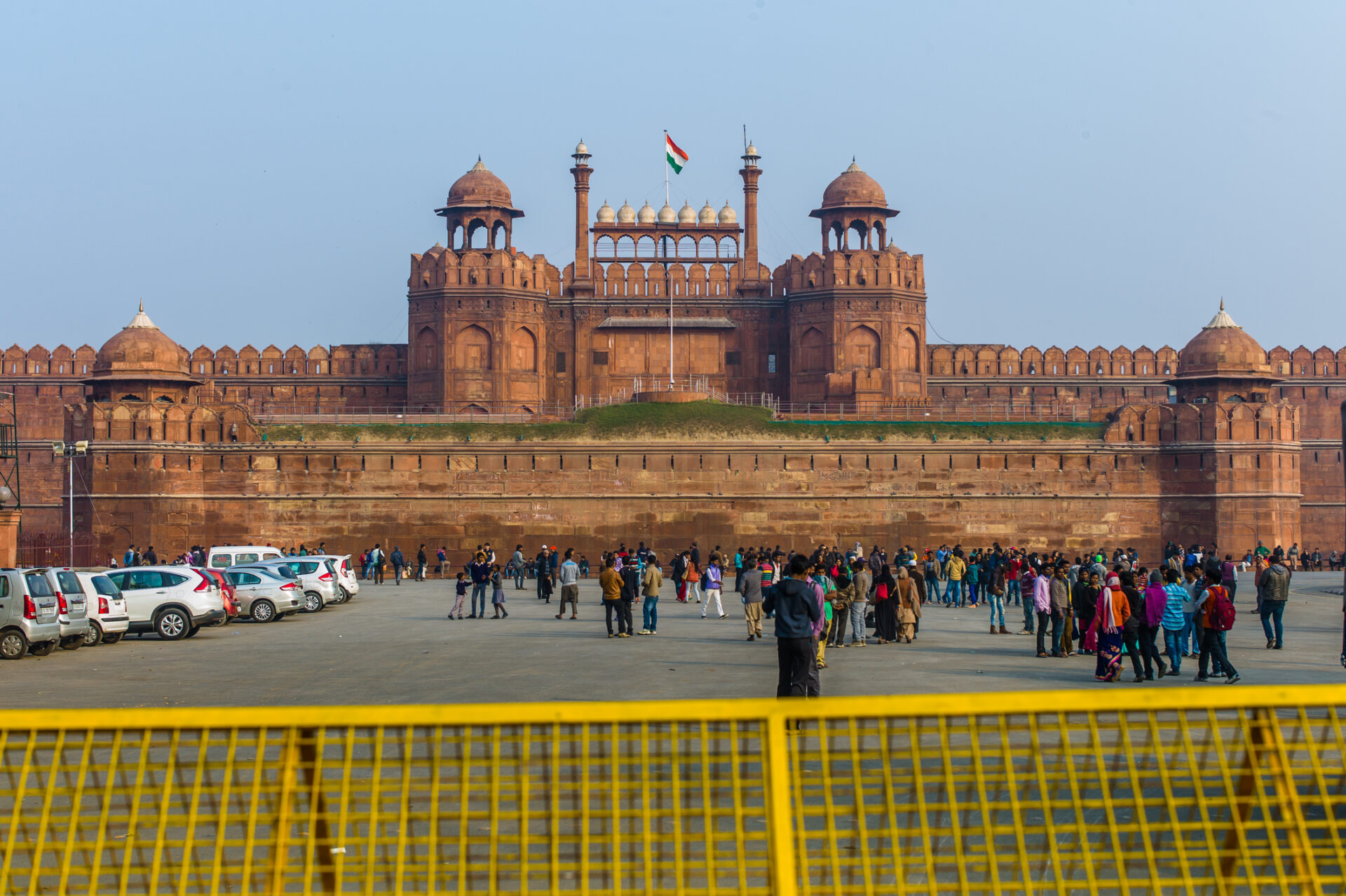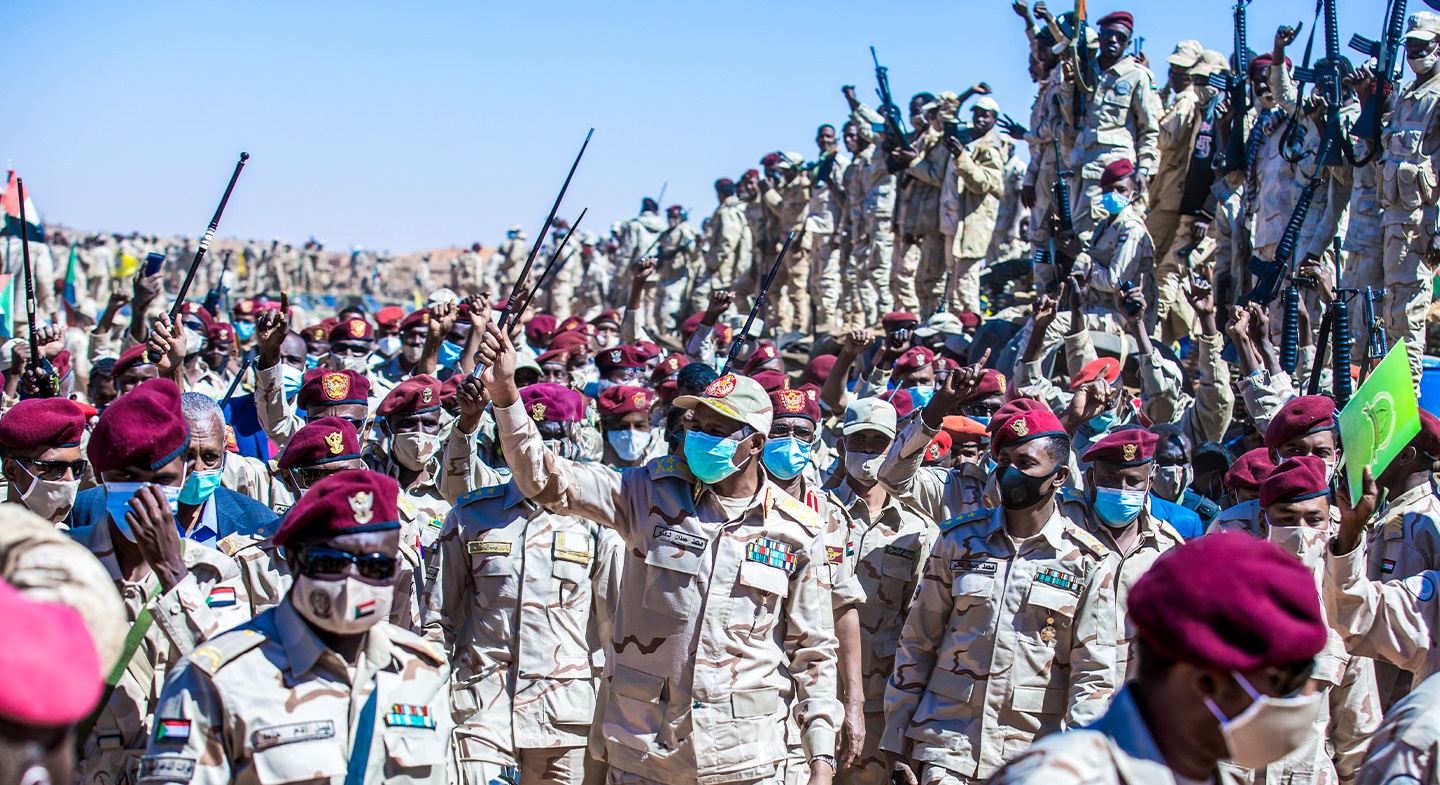
Iran and Pakistan Cooperate on Counter-Terrorism Amid Jaish al-Adl and Baloch Separatist Attacks
Iran and Pakistan Cooperate on Counter-Terrorism Amid Jaish al-Adl and Baloch Separatist Attacks
Executive Summary:
- In April, Pakistan and Iran agreed to station liaison officers at their mutual border to coordinate counter-terrorism efforts. Border cooperation will likely reduce local militancy and improve ties between the two states.
- In January, Pakistan and Iran launched surprise strikes on one another, with both governments claiming to have targeted Baloch militant groups taking refuge within the other’s borders.
- Despite the attacks and long-time accusations between Tehran and Islamabad that the other sponsors hostile terrorist groups, the Iran–Pakistan relationship appeared to heal unnaturally quickly, prompting questions over whether or not the incident could have been planned and coordinated ahead of time.
Following the visit of the late Iranian President Ebrahim Raisi to Pakistan in April, both Pakistan and Iran decided to appoint colonel-rank liaison officers at their mutual border to coordinate joint counter-terrorism efforts. Per the bilateral agreement, Pakistani liaison officers are stationed in Zahedan, Iran, while the Iranian officers are stationed in Turbat, Pakistan (The Nation, April 29). This development is the result of years-long efforts to achieve an ideal counter-terrorism framework between the two countries.
Tit-for-Tat Strikes
On January 16, Iran launched ballistic missiles and suicide drones into Pakistan’s Balochistan Province in an attempt to target Jaish al-Adl’s hideouts in a border town, Panjgur (Dawn, January 17; see Terrorism Monitor, January 31). In retaliation, Pakistan launched its own missiles into Iran’s Sistan and Baluchestan Province, claiming to target the hideouts of Baloch separatists, such as the Balochistan Liberation Army (BLA) and Balochistan Liberation Front (BLF). These attacks fell primarily on the town of Saravan along the Iran–Pakistan border (Dawn, January 19). While it was feared at the time that the incidents would permanently damage relations between the two countries, in the weeks that followed, both governments signaled that relations between them were surprisingly friendly, considering the recent exchange of missiles (see Terrorism Monitor, May 30). It may be the case that the rapid degrading and immediate improvement of relations was intentional. This would suggest that Iran and Pakistan were engaged in a joint counter-terrorism operation and that the cross-border strikes and counterstrikes were coordinated in advance.
Accusations of Sponsoring Terrorism
Iran and Pakistan have traded accusations over the years that the other was sheltering, supporting, and funding hostile terrorist groups within their respective borders. In February 2022, the Baloch Nationalist Army (BNA) carried out twin attacks against army posts in Nushki and Panjgur in Pakistan’s Balochistan Province, killing nine soldiers (Al Jazeera, February 5, 2022). Following the attacks by the BNA and other Baloch separatist groups around the same time, Pakistan’s then-Interior Minister Sheikh Rasheed Ahmad claimed that Baloch separatists were taking advantage of safe havens in Iran to launch attacks in Pakistan. He also confirmed that Baloch separatists were regrouping in Iran’s Sistan and Balochistan Province (Pakistan Forward, March 31, 2022).
Moreover, in August 2021, the Counter-Terrorism Department (CTD) of the Karachi Police force arrested Syed Ali Raza Naqvi, a member of the banned Shia political party-turned-militant-group Sipah-e-Muhammad Pakistan (SMP). Naqvi was involved in the killing of religious scholars and rival Sunnis for three decades and had links with the Iran-backed Zainabiyoun brigade. Pakistan has accused Iran of funding the SMP. The same year, Karachi’s CTD arrested another top Zainabyoun militant, Abbas Jafri. Jafri had been involved in recruiting Shia youth and sending them abroad to fight in wars directed by Iran’s Islamic Revolutionary Guard Corps (IRGC), such as the Syrian Civil War (Pakistan Forward, August 11, 2021).
Likewise, Iran has accused Pakistan of sheltering anti-Iran militants, claiming that Pakistan is backing Jaish al-Adl with support from Saudi Arabia. On February 13, 2019, Jaish al-Adl targeted IRGC troops near the border with Pakistan, killing 27 soldiers (Radio Free Europe/Radio Liberty, February 16, 2019). Addressing mourners of the killed troops, then-IRGC Commander-in-Chief Mohammad Ali Jafari stated that “the government of Pakistan must pay the price of harboring these terrorist groups” and that “this price will undoubtedly be very high” (The Indian Express, February 17, 2019).
Conclusion
In spite of the damage done by Pakistan and Iran’s regular accusations that the other is sponsoring terrorism, the two countries have continued to enhance counter-terrorism cooperation over the years. In September 2023, for example, Chief of Staff of the Iranian Armed Forces Mohammad Baqeri stated that Iran’s security forces are ready for any cooperation with Pakistan in the fight against terrorism. This remark was made during a speech where Baqeri extended his sympathy over a deadly bombing at a religious gathering in Balochistan, which killed 50 individuals (Xinhua, October 1, 2023). In June 2023, during Pakistani Secretary of Defense Hamood uz Zaman Khan’s visit to Iran, both countries agreed to bolster collaboration in the area of counter-terrorism (Iranian Ministry of Foreign Affairs, June 26, 2023). Something quite similar occurred in 2019, when then-Prime Minister Imran Khan of Pakistan and then-President of Iran Hassan Rouhani had a conversation in which the two agreed to direct their respective intelligence agencies to work more closely together in combatting terrorism (Dawn, March 16, 2019).
The agreement made in April between Pakistan and Iran to station officers on one another’s territory to coordinate joint counter-terrorism operations represents a significant and long-desired achievement for both countries. Attacks by a variety of Baloch separatists in Pakistan and Jaish al-Adl in Iran have worsened relations between the two nations. Conversely, border cooperation will potentially reduce local militancy and improve the relationship between the two states.


